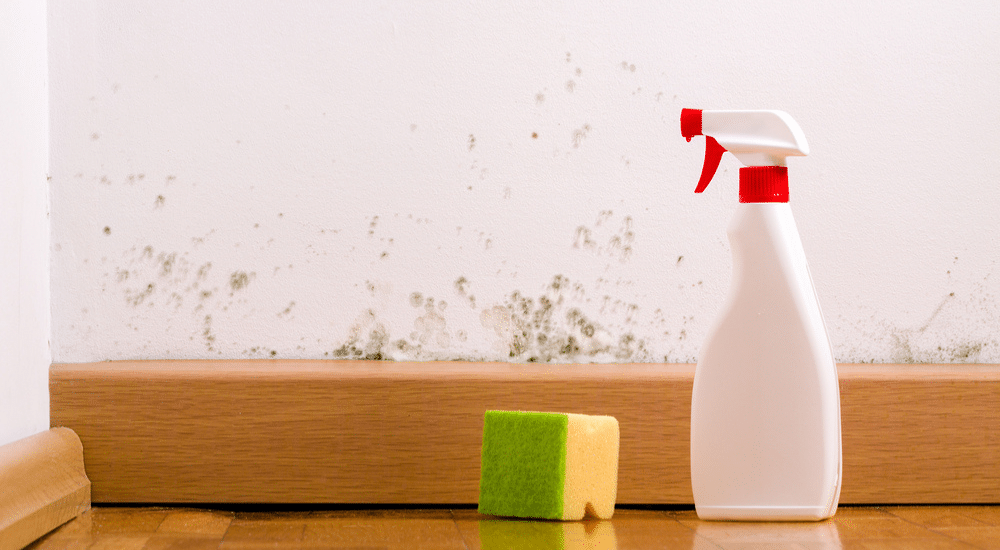A healthy lifestyle is a dream for many, but not too many people know or understand that the health of your home can determine how healthy your lifestyle is.
Unfortunately, certain contaminants in your living environments can affect your well-being.
Mould is one such polluter and is a fungus that thrives in damp and humid environments. Left unchecked, it can cause various health issues including wheezing, unexplained coughing, chronic or acute bronchitis, and can aggravate asthma attacks.
Mould is also incredibly hard to get rid of completely. As a building biologist, I know how resilient this fungus can be!
That said, there are a few methods you can use to go about making your home a mould-free space, ranging from things you can do yourself to more professional interventions.
One popular DIY method to remove this harmful fungus is using clove oil. Let’s take a look into the effectiveness of clove oil for mould, when to use it and how to use it.
How effective is clove oil for mould?
Clove oil is an essential natural oil that has antifungal properties, a fact that makes it a popular suggestion for combating mould. Now, to the important question: How effective is clove oil when it comes to getting rid of mould spores?
Technically speaking, clove oil does work against the fungus, but only to a certain extent.
While the oil might kill fungal spores, your home might become reinfected if there is moisture in the walls, tiles and other surfaces. This means that while clove oil is useful to get rid of mould, it won’t necessarily prevent it.
The oil also only works on hard surfaces like walls, tiles, and floorboards, and should not be used to treat soft material like fabrics as the substance can leave a residue.
Another thing to consider is clove oil might cause skin irritations and allergic reactions in some people. I suggest spot-checking the solution on a small area of your home to make sure you don’t develop skin irritations or other allergic reactions.
Using clove oil to get rid of mould in your home
You can buy clove oil from your local supermarket or medicinal stores in either a 100% pure form or a diluted form. I recommend using the pure form as it is more effective against the fungus.
That said, use only ¼ of a teaspoon of clove oil with a litre of water because the pure form of the oil is strong. Make sure you mix the oil thoroughly in the water.
Make sure you also wear protective goggles and gloves when working with clove oil. As I mentioned already, it can cause skin irritation and allergies. After protecting yourself, spray it directly to the infected area and leave it overnight to kill any fungal spores. The next day, wash the area with a basic baking soda and white vinegar solution, which will wash away any residues of oil on the surface.
Clove oil for mould may be useful—but take the right precautions
Using clove oil for mould can be an effective solution in the short run due to the antifungal properties in the oil. That said, it is my professional advice that you protect yourself before using this solution as it can cause certain unpleasant and discomforting reactions.
If you’re not confident about getting rid of the mould in your space or the problem is far too extensive for a quick clove oil fix, speak to a building biologist immediately.
When left untreated, mould can cause serious health issues in your home and damage the structure of your space too.

